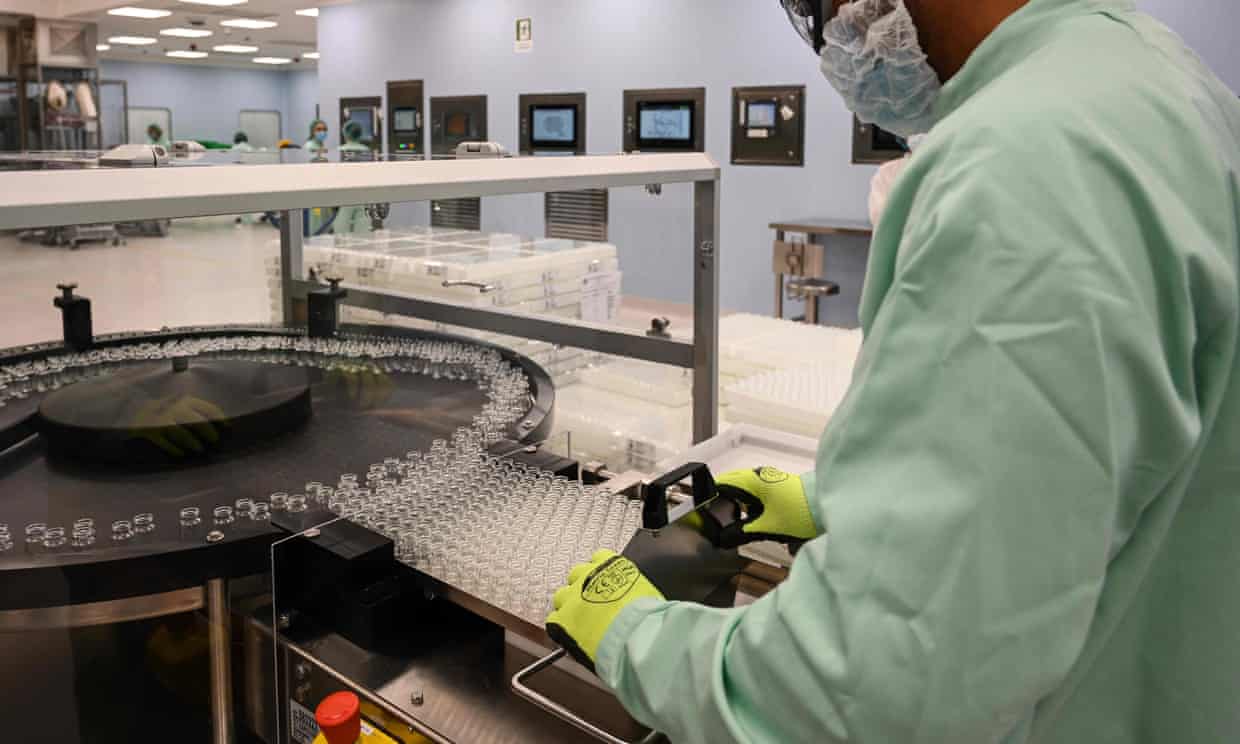
The Observer
Oxford University resumes Covid-19 vaccine trials
Trials of vaccine being developed with AstraZeneca had been paused after participant fell ill
by Jamie DowardThe closely watched trial of an experimental Covid-19 vaccine that was halted after a participant fell ill is to resume in the UK.
The University of Oxford, which has partnered with pharmaceutical giant AstraZeneca to pilot the study, said that the UK Medicines and Healthcare Products Regulatory Agency (MHRA) had recommended that its trials resume after an independent committee review of safety data triggered a pause last week.
In a statement, the university said: “Globally some 18,000 individuals have received study vaccines as part of the trial. In large trials such as this, it is expected that some participants will become unwell and every case must be evaluated to ensure careful assessment of safety.”
“The UK committee has concluded its investigations and recommended to the MHRA that trials in the UK are safe to resume,” AstraZeneca said in a separate statement.
The health secretary, Matt Hancock welcomed the restart. He tweeted: “Good news for everyone the Oxford vaccine trials are back up and running. This pause shows we will always put safety first. We will back our scientists to deliver an effective vaccine as soon as safely possible.”
Experts say such halts are common in vaccine trials. But the interruption to the Oxford study fuelled concerns about whether such trials were proceeding too quickly. It was the second time that trials of the vaccine, which began in April, had been paused.
AstraZeneca’s chief executive officer, Pascal Soriot, said on Thursday that the independent committee was reviewing whether the participant’s illness had been caused by the vaccine or was unrelated.
“We cannot disclose medical information about the illness for reasons of participant confidentiality,” the university explained. “We are committed to the safety of our participants and the highest standards of conduct in our studies and will continue to monitor safety closely.”
The vaccine being trialled is made from a virus that is a weakened version of a common cold virus that causes infections in chimpanzees.
The Oxford study is one of six phase-three trials – the final step before approval – currently taking place around the world.
In addition to trials in the UK, studies are being carried out in the US, Brazil and South Africa. Vaccine developers are under acute political pressure to secure a breakthrough.
The US president, Donald Trump, has suggested that a vaccine could be available in the US before 3 November’s election. But this has prompted pushback from the developers.
Last week, nine vaccine developers sought to reassure the public by announcing a “historic pledge” to uphold scientific and ethical standards in the search for a vaccine. The firms said they would apply for regulatory approval only after their vaccines had gone through three phases of clinical study.